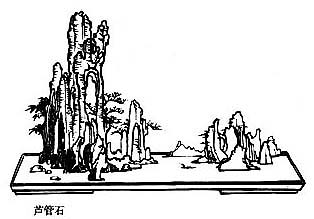論
語
Lun Yu 
 – The Analects of Confucius
– The Analects of Confucius
The Master discusses with his disciples and unveil his preoccupations with society. Tr. Legge (en), Lau (en) and Couvreur (fr).
Lunyu VI. 22. (142)
Chief elements in wisdom and virtue.
Fan Ch'ih asked what constituted wisdom. The Master said, "To give one's self earnestly to the duties due to men, and, while respecting spiritual beings, to keep aloof from them, may be called wisdom." He asked about perfect virtue. The Master said, "The man of virtue makes the difficulty to be overcome his first business, and success only a subsequent consideration;– this may be called perfect virtue."
Legge VI.20.
Fan Ch'ih asked about wisdom. The Master said, 'To work for the things the common people have a fight to and to keep one's distance from the gods and spirits while showing them reverence can be called wisdom.'
Fan Ch'ih asked about benevolence. The Master said, 'The benevolent man reaps the benefit only after overcoming difficulties. That can be called benevolence.'
Lau [6:22]
Fan Tch'eu l'interrogea sur l'intelligence. Le Maître dit : « Traiter le peuple avec équité, honorer les esprits, mais s'en tenir à distance1, cela peut s'appeler intelligence. » Honorer les esprits, c'est s'appliquer de tout cœur à leur témoigner sa reconnaissance et à leur faire des offrandes. Les esprits, dont il est ici parlé, sont ceux auxquels on doit faire des offrandes. Se tenir à l'écart, c'est ne pas chercher à faire en quelque sorte la cour aux esprits pour en obtenir des faveurs. L'homme a des règles constantes à observer dans toutes ses actions chaque jour de sa vie. Si quelqu'un, guidé par son jugement, donne toute son application aux devoirs qu'il doit remplir et aux choses qu'il doit faire, s'il honore les esprits par des hommages sincères, sans leur faire la cour ni solliciter leurs faveurs, la prospérité et l'infortune ne sont plus capables de le toucher ; n'est-ce pas de l'intelligence ? (Tchou Hsi)
Fan Tch'eu l'interrogea ensuite sur le sens de l'humanité. Confucius répondit : « L'homme honorable commence par le plus difficile, avant de penser aux avantages qu'il en doit retirer ; on peut appeler cela de l'humanité. »
Couvreur VI.20.
b. Ia bertanya pula tentang seorang yang berperi Cinta Kasih. Dijawab, "Seorang yang berperi Cinta Kasih rela menderita lebih dahulu dan membelakangkan keuntungan. Demikianlah orang yang berperi Cinta Kasih".

The Analects of Confucius – Lun Yu VI. 22. (142) – Chinese on/off – Français/English
Alias the Lunyu, the Lun Yü, the Analects, les Entretiens du maître avec ses disciples.
The Book of Odes, The Analects, Great Learning, Doctrine of the Mean, Three-characters book, The Book of Changes, The Way and its Power, 300 Tang Poems, The Art of War, Thirty-Six Strategies
Welcome, help, notes, introduction, table.
Index – Contact – Top























